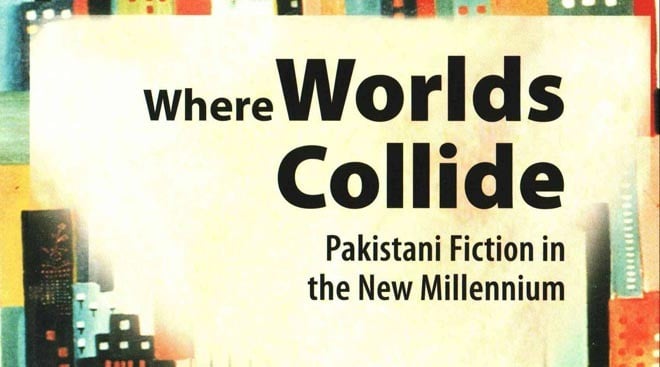
The chapters of this critical anthology are linked together to sketch a portrait of Pakistanis that challenges their stereotypical image in the West

The title of David Waterman’s critical anthology on modern Pakistani prose in English, Where Worlds Collide: Pakistani Fiction in the New Millennium, indicates at the outset that hybridity will be a central concern of the compilation. This is further borne out through each of the nine chapters that discuss a different text by the ‘second wave’ of Pakistani writers. Waterman states that the works of fiction have been chosen more due to ‘personal affinity’ and familiarity with the text rather than as representative of the entire firmament of Pakistani fiction in the English language. However, Waterman, like any reader of Pakistani fiction published in the new millennium, discerns that "much of contemporary Pakistani fiction could be called historical fiction," and attempts to decipher the various ways in which history and identity inform each other for the present-day Pakistani.
History is a topic fraught with multiple connotations for a post-colonial society that achieved independent statehood by mobilising the notion of a religious commonality. For Pakistanis, such as the character of Changez in Mohsin Hamid’s The Reluctant Fundamentalist, the first text under discussion, history can extend as far back as the ancient Indus civilization, or as seen in Kamila Shamsie’s Kartography, be as recent as the 1971 events that led to the creation of Bangladesh.
For Waterman, the insistent inward focus of Pakistani fiction is the biggest contribution of Pakistani writers to the national narrative as well as the global audience; by "taking history with a capital H into account, linking it to the everyday, and daring to imagine a Pakistan whose story is not yet finished."
At the heart of the matter is, again, the dichotomy, or "clivages", that alternatively construct and deconstruct identity for a Pakistani in a globalised context.
The personal and public interact constantly in the nine stories of alienation and belonging, disillusionment and the journey to self-revelation, conflict and triumph, and memory and perception. The critical anthology includes the work of seven contemporary Anglophone Pakistani novelists: Mohsin Hamid’s The Reluctant Fundamentalist, Kamila Shamsie’s In the City by the Sea and Kartography, Nadeem Aslam’s The Wasted Vigil and Maps for Lost Lovers, H.M. Naqvi’s Home Boy, Mohammed Hanif’s A Case of Exploding Mangoes, Uzma Aslam Khan’s Geometry of God, and Sorayya Khan’s Noor. A foreword by Muneeza Shamsie and a piece of non-fiction writing by Kamila Shamsie at the end, round off the book.
The organisational structure of the book is not linear, and free of the constraints of chronology such as the 1971 or post 9/11 novel. The chapters are instead linked through a commonality of purpose; an attempt to peel away the multiple layers of cultural, social, political, and national identity that collide with the shifting concept of ‘history’ and sketch a portrait of Pakistanis that challenges the stereotypical image in the West.
Dr Waterman is no stranger to Pakistani fiction. A professor in the department of Applied Languages at L’Universite de La Rochelle, his interest in Pakistani fiction goes back to his days as the review and articles editor for the academic publication Pakistaniaat: A Journal of Pakistan Studies. Waterman’s use of excerpts of the text under discussion with quotes from various literary and social theorists is a classic technique of academic writing. While they are ostensibly used to strengthen his interpretation of the multiple texts, the excerpts interestingly provide linkages between the different theoretical frameworks mentioned by the author. The compilation is chockfull of academic references; but Waterman weaves them through his anthology with such mastery that the overall impression is never of pedantry. However, the heavy weightage given to those references, though it reveals Waterman’s command over his subject, sometimes detracts from the focus on the texts being analysed.
Where Worlds Collide is without a doubt a compilation of an academic’s intense scrutiny of some of Pakistan’s best-known fictional prose in the English language. In the process, he hints at the nuances and complexities of Pakistani society, and thus aids the Pakistani writers in chipping away at the Western perception of Pakistan as a ‘monolith’ of extremism.